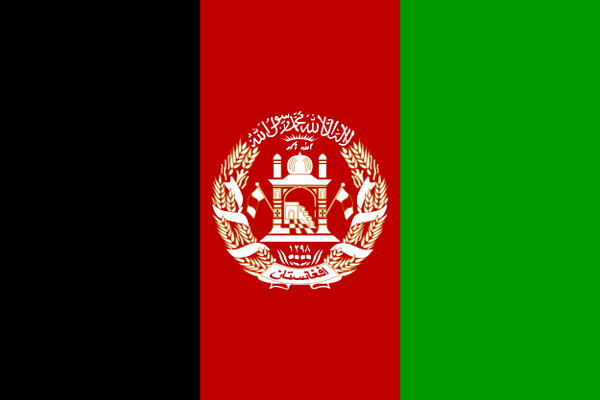Afghan family law sparks angry demonstrations in Kabul By Farhad Peikar
 Kabul - More than 1,000 Afghans surrounded a group of 200 protesters who took to Kabul's streets Wednesday to protest a new family law that they said violates women's rights.
Kabul - More than 1,000 Afghans surrounded a group of 200 protesters who took to Kabul's streets Wednesday to protest a new family law that they said violates women's rights.
As police tried to keep the two groups apart, a man picked up a stone and threw it at a schoolgirl, shouting at her, "You dog of the Westerners, go from here."
At least three people were wounded by police gunshots in western Kabul, witnesses said, when a group of young Shiite men tried to stop schoolgirls who were on their way to join the protest against the Shiite family law that lawmakers passed and President Hamid Karzai signed last month amid national and international criticism.
Critics said the law "legalizes rape within marriage" because some of its articles allow husbands to demand sex from their wives every fourth night unless they are ill or have "lawful or logical excuses."
The 200 female protestors, mostly young students, gathered in front of a Shiite Islamic university to call on the government and parliament to change it.
The protesters, who were carrying banners and chanting, "We want amendments to the law," encountered counterprotestors moments after they began their march near parliament.
More than 1,000 counterprotestors, including about 300 women, stormed out of the Shiite Islamic university and surrounded the 200 demonstrators.
The counterprotestors, who were mainly the followers of a top Shiite cleric, Hayatullah Sheikh Mohammad Asif Mohsini, called the anti- Shiite law protesters "apostates and slaves of the Christians."
Some of the protesters accused Mohsini of sending his followers to different parts of the city to disperse the women who tried to join the demonstration.
After outcries by Western leaders, including US President Barack Obama, who labeled the law "abhorrent," Karzai this month ordered the Ministry of Justice to review the Shiite law and amend any article that violates the constitution. Afghanistan's constitution guarantees equal rights for women and men.
Although the law only applies to Shiites, who make up 15 to 20 per cent of Afghanistan's 30 million people, activists said they fear that such laws could be a beginning of a return to Taliban-style oppression.
Taliban militants banned women from going to school and work outside the home when they ruled Afghanistan from 1996 to late 2001. Women were not allowed to be seen in public unless accompanied by male members of their families.
"They compare this law with Taliban law, which is not logical," Aisha Naseri, 21, one of the counterprotestors said, adding, "The Taliban did not let women go out and study, but this law encourages women to study and become educated."
"I personally think that those who oppose this law in fact oppose Islamic law and oppose the Koran," she said.
But critics of the law said they only wanted the articles that restrict women's rights to be amended.
"We are not saying that we don't want the whole law, but we want those articles that are against women's rights to be changed," said Homa Sultani, a women's rights activist and one of the protest organizers.
"Due to the sensitivity of this law and the pressure by some Shiite lawmakers, it was approved by the parliament as a package, not article by article, which is the procedure for all other bills," said Sabrina Saqib, a female member of parliament.
Fauzia Kofi, another female lawmaker, accused Karzai of using the law to try to win the support of Shiite clerics in the upcoming presidential elections slated for August.
"Unfortunately, the women and children in Afghanistan have always been the victims of political games," she said, adding, "As the presidential election is coming closer, a tenser situation is imposed on women."
Abas Noyan, a male Shiite member of parliament, sought a parliamentary review of the law. "I think the only solution is that Karzai should reject this law and send it back to parliament so that the lawmakers study it again and then pass it with some amendments," he said. (dpa)